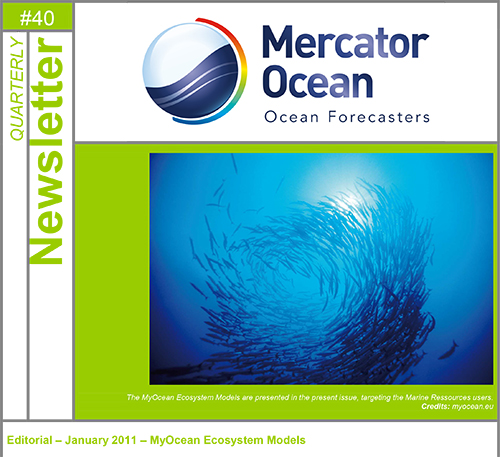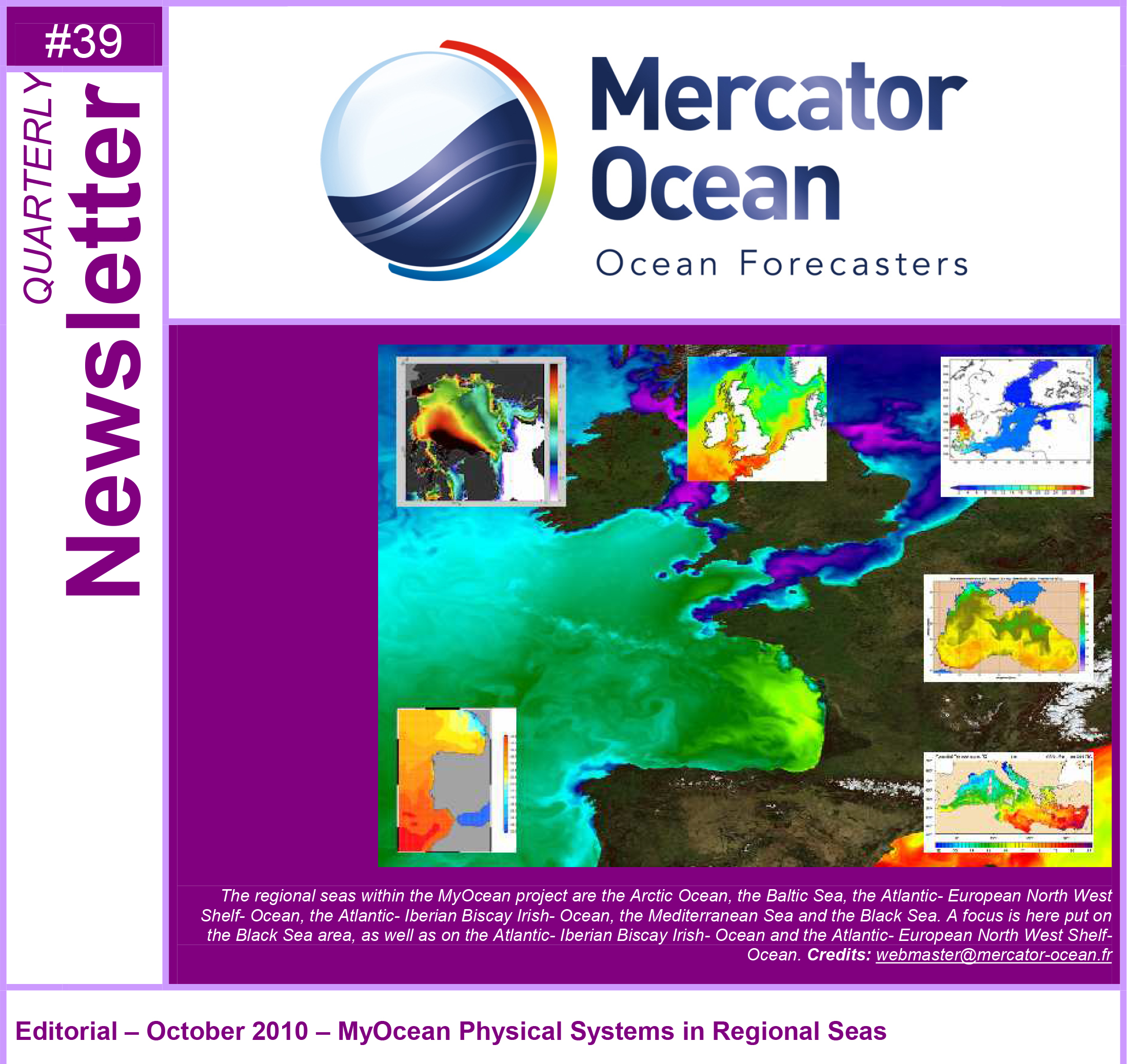QUOVADIS_NUM3_OND_2010
Charles Desportes, Marie Drévillon, Charly Régnier
(MERCATOR OCEAN/Production Dep./Products Quality)
Eric Greiner, Benoît Tranchant, Hélène Etienne (CLS), Jean-Michel Lellouche, Olivier Le Galloudec, Gilles Garric (MERCATOR OCEAN/ Production Dep./R&D)
Eric Greiner, Mounir Benkiran, Nathalie Verbrugge, Hélène Etienne (CLS), Fabrice Hernandez, Laurence Crosnier (MERCATOR OCEAN), Nicolas Ferry, Gilles Garric , Jean-Michel Lellouche (MERCATOR OCEAN), Jean-Marc Molines (CNRS), Sébastien Theeten (Ifremer), the DRAKKAR and NEMO groups. Nicolas Pene (ex-AKKA), Silvana Buarque (Météo-France), the BCG group (Météo-France, CERFACS)
Information on input data:
Christine Boone, Stéphanie Guinehut, Gaël Nicolas (CLS/ARMOR team)
This bulletin gives an estimate of the accuracy of MERCATOR OCEAN’s analyses and forecast for the season of October-November-December 2010. It also provides a summary of useful information on the context of the production for this period. Diagnostics will be displayed for the global 1/12° (PSY4), global ¼° (PSY3) and the Atlantic and Mediterranean zoom at 1/12° (PSY2) monitoring and forecasting systems currently producing daily 3D temperature salinity and current products. In this issue, we focus on the Mercator Ocean products currently available via MyOcean V1 for the whole year 2010. Since the “calibration” of the global systems on the 2007-2009 period, regional biases have been identified and a series of improvements and corrections have been tested on the year 2010. As part of the continuous improvement process of MyOcean, we compare the results of these last R&D improvements to what was delivered through the MyOcean service in December 2010 (see data assimilation performance discussion). Apart from future quality updates, we verify that in OND 2010 the V1 forecast is already far more accurate than the V0 forecast (MyOcean V1 14-day forecast are available since December 2010). This issue’s process study is performed with the global 1/12° system (PSY4) and shows the interest of global high resolution analyses and forecast, here in the Southern Ocean. Finally, Mercator Ocean systems are in constant evolution and many ideas are tested in the R&D team for their long term improvement. Those R&D sensitivity studies make use of the operational validation metrics in order to measure the eventual quality improvements. A short summary from a R&D study illustrates one of the ideas that has been tested for the improvement of the data assimilation scheme.


